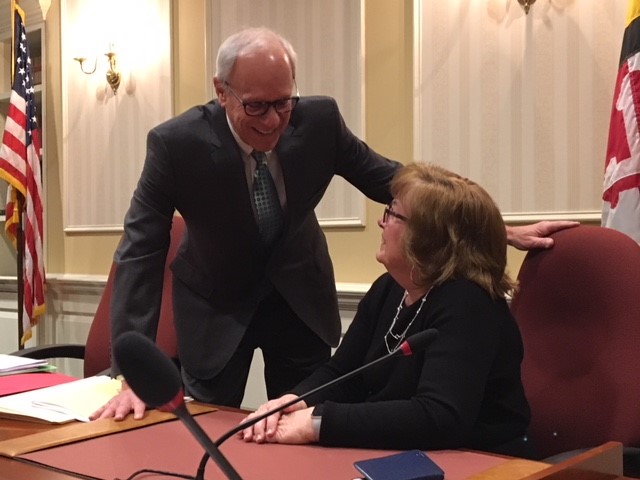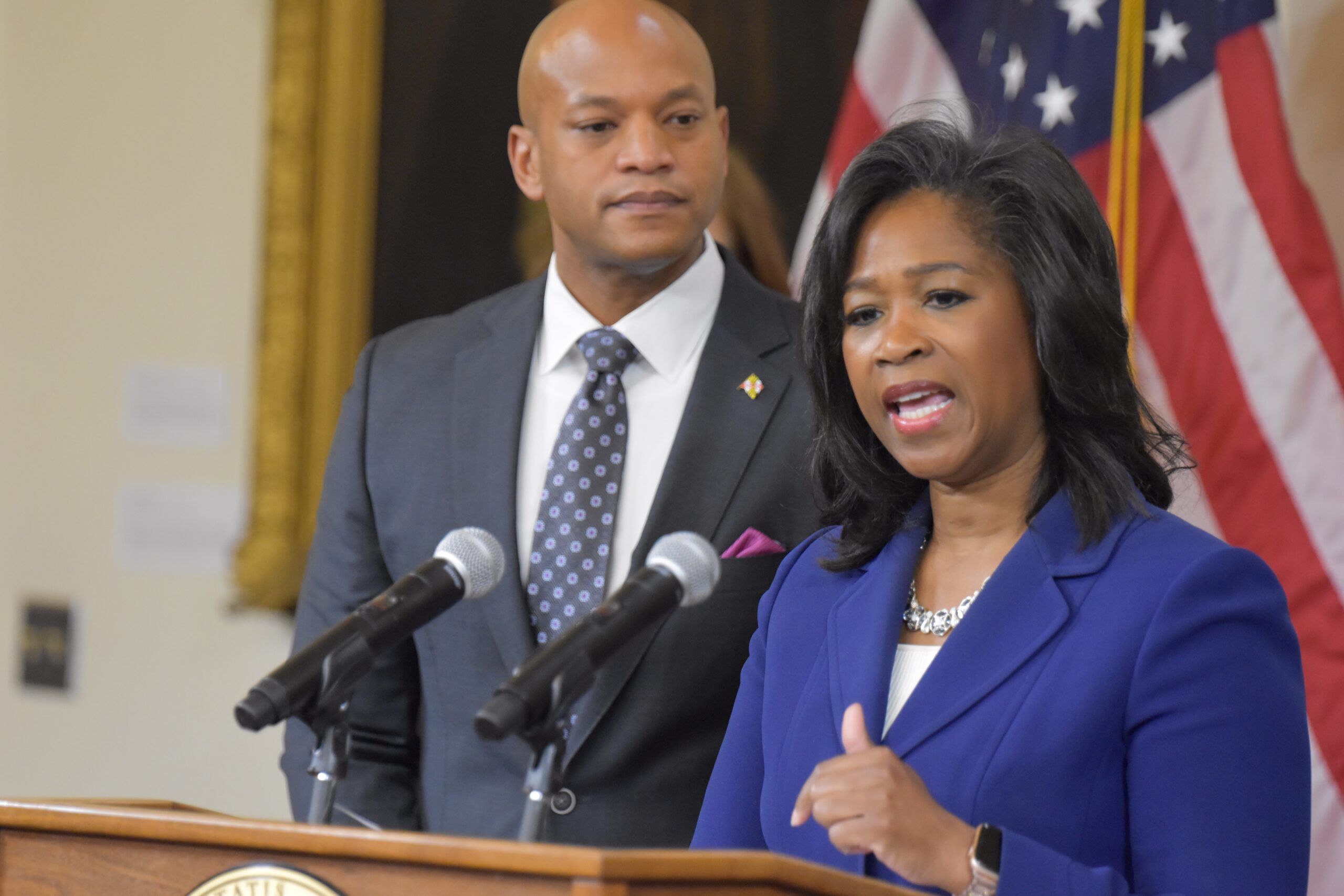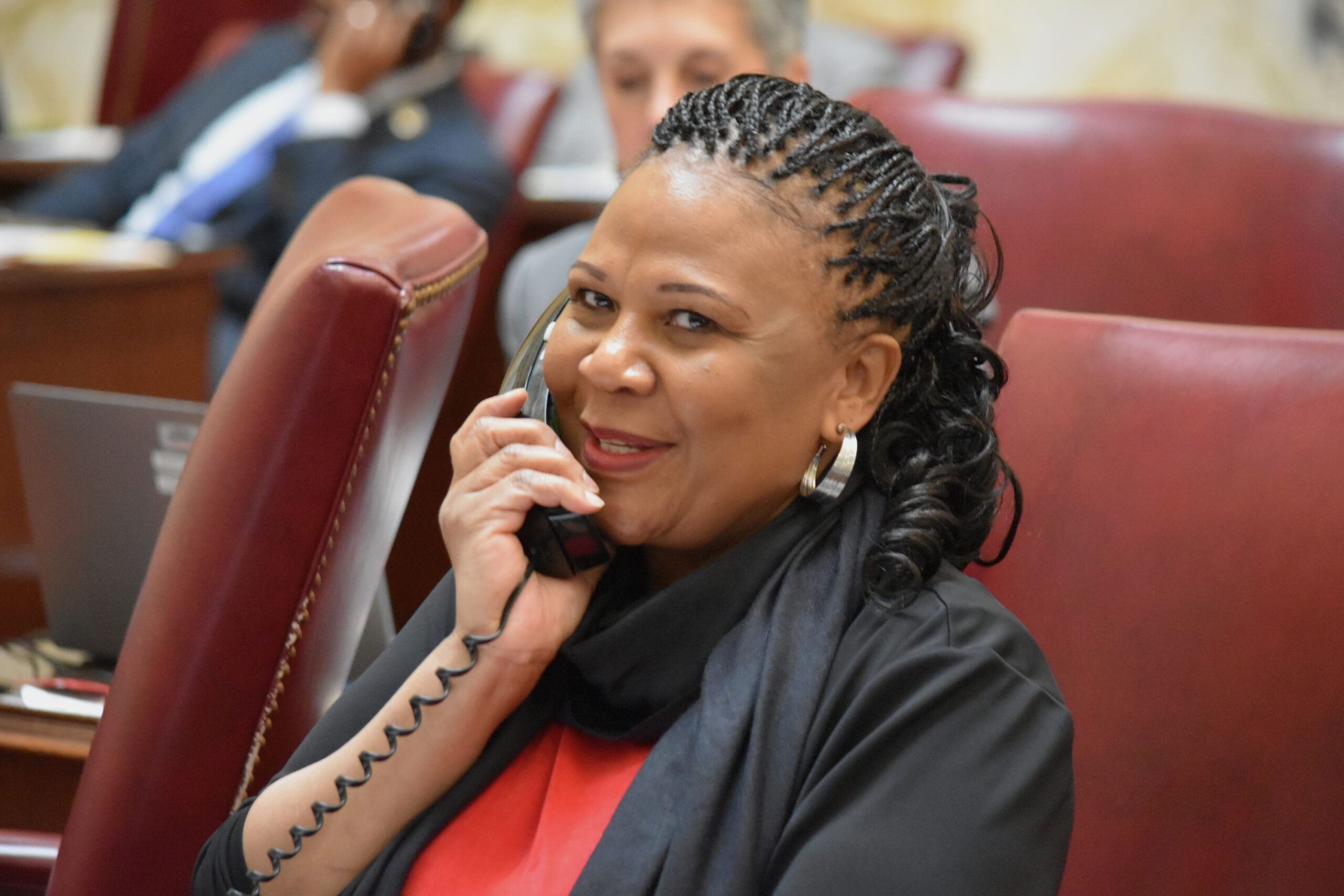Bill Would Make Community College Tuition-Free for Most Students
A proposal to make community college tuition-free was hailed by educators as a potential game-changer for students from low- and middle-income families.
“This can be the greatest piece of social justice legislation in the state of Maryland,” Prince George’s Community College President Charlene Dukes told a Senate panel Wednesday.

Sen. Paul G. Pinsky, left, talks with Sen. Nancy J. King, chairwoman of the Budget and Taxation subcommittee on education. Photo by Bruce DePuyt.
“Post-secondary experience is a necessity,” said Bernie Sandusky, head of the Maryland Association of Community Colleges. “Unless we go out and provide folks an opportunity, we’re going to have haves and have-nots in this state.”
The educators were making a plea to the Senate Education, Health and Environment Committee and select members of the Budget and Taxation Committee on behalf of SB 317 introduced by Sen. Paul G. Pinsky (D-Prince George’s). HB 951 was cross-filed in the House by Del. Jimmy Tarlau (D-Prince George’s).
The bill would allow students whose families make less than $150,000 a year to pursue an associate degree tuition-free. The measure is similar to a more ambitious bill enacted last year by the New York state legislature, which granted in-state residents the right to attend four-year institutions free of charge.
“Student loan debt [in the U.S.] is $1.3 trillion,” Pinsky told his colleagues. “So we’re talking about a major, major problem. This bill … is meant to reduce the debt for students attending college and have more people better prepared for the work world.”
SB 317 would also:
- Cap tuition increases at four-year institutions at 2 percent a year;
- Provide child care and transportation funding for some low-income students; and
- Include tuition assistance for “near completors” — students who left school within 15 credits of their degree.
“Maryland remains stuck at the bottom of the opportunity ladder for important jobs in cybersecurity and other professions which are necessary for the knowledge economy,” DeRionne P. Pollard, president of Montgomery College, told the panel.
To fund the proposal, Pinsky would eliminate the “carried-interest loophole,” an idea that drew skeptical comments from some members of the committee.
“This bill doesn’t remove debt, it just moves it to someone else,” said Sen. Bryan W. Simonaire (R-Anne Arundel).
But Pinsky defended the concept. “There’s a small segment of our population — probably a couple hundred people in our state — who are private equity managers, venture capital managers and hedge fund people” whose income is taxed at the capital gains rate, rather than at the standard rate paid by “99.99 percent” of workers, he said.
To qualify for free community college tuition, students would have to attend school full time, maintain a 2.0 GPA and work in Maryland for at least two years after graduating, “so we keep the value of their training within the state,” the senator said.
Lawmakers heard supportive testimony from students, including one woman who works three jobs while attending class. Her father was recently diagnosed with cancer.
“Poverty remains the greatest source of difficulty for students achieving their degree — not lack of effort,” Pollard said.




 Creative Commons Attribution
Creative Commons Attribution